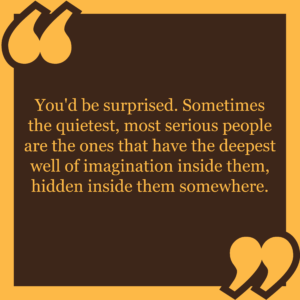
Early in her career, Lucie Pohl never considered lending her voice talents to video games, but after recording an audition under a big blanket to soundproof herself, she eventually landed the part of Mercy in the international smash hit “Overwatch” and has since brought the character to life for more than 40 millions players worldwide.
We recently sat down with the actress and comedian to discuss the art of timing, finding a character through internal creativity, and why she’s glad she didn’t curse out a waiter.
TrunkSpace: So far, has your career gone to plan? Is this the path that you originally intended for yourself?
Pohl: Well, I think that’s hard to say. I don’t think anybody’s career goes the way that they think it’ll go. I don’t know that I had a set image of how I thought my career was going to go, but if you mean did I expect for a character on a video game that I would voice to be so good, and give me such a big platform, and introduce me to so many people all over the world, then no. Definitely not. I’m really glad I didn’t expect or know that it could be such a big project to be working on because I think I would’ve totally psyched myself out in the audition and in its first recording. So, I’m happy that I was naïve and just thought, “Oh, this is a fun gig, and let’s see where it goes.” But no, I didn’t think that I would land a big role in a video game at some point in my life. I’ve never thought about that ever.
TrunkSpace: What about in terms of voice acting in general? Was that something that was always in the cards?
Pohl: No. I didn’t really think a lot about voice acting. I’m an actor, so after a comedian, that’s what I’ve always been doing. I didn’t know much about voice acting in the sense of really pursuing it and having a place in that part of the industry, but I did start doing voice acting work pretty early on in my acting career. I knew that I liked doing it, and I knew that it was something I wanted to continue doing, and that I enjoy it, but I never thought about really pursuing it as the only way to be an actor.
There aren’t many voice actors who are purely voice actors. I never thought about limiting myself to that or really pursuing it with a lot of effort, but then as I started doing more and more voice work. I did start to realize that it’s something that I’m able to do, and I always got really good feedback on my voice. So, I did start to pursue it a bit more. I started out doing a lot of German stuff, and when I went back to Germany to study there, I did some animation there too. Then when I came back, I started out doing a lot of German language learning programs where you just have to say vocabulary words with no information on them for like five hours straight. So, not very glamorous stuff, but I did put in the time and paid my dues, I think.
TrunkSpace: Does one scratch the other’s back? Does success in onscreen work lead to more work in voice over, and vice versa?
Pohl: Yes and no. I think that the voice acting world is a pretty tough world to get into. Of course, if you have on-camera credit, that always helps, but I think it is a bit of a different skill set, a bit of a different way to be working. Just because you’re an on-camera actor doesn’t necessarily mean that you know how to do the voice acting stuff, and the other way around, of course.
helps, but I think it is a bit of a different skill set, a bit of a different way to be working. Just because you’re an on-camera actor doesn’t necessarily mean that you know how to do the voice acting stuff, and the other way around, of course.
TrunkSpace: Did being a comedian and having a comfort on stage help? We would imagine things like timing – the emphasis of it – would carry over?
Pohl: I think so. I think what you touched on it in terms of timing being really important… I think timing is really important for actors in general, and obviously comedy is, I don’t know, 99 percent or 100 percent timing. Who knows, but a lot of it is timing! Maybe in life in general, everything is timing. But I think the comedy definitely helped. I think improv skills help with voice acting, and character skills help, obviously – being able to do different voices, and find different characters.
Darin De Paul, who voices Reinhardt and a million other characters, gave me some really good advice once. He said, “You know, for animation for example, it’s very important to really think about the big switches. What really works in animation is a character that is really dreamy, and then all of sudden he’s really angry.” That’s obviously because animation a lot of times is so exaggerated. When you do comedy, you’ve explored that a lot because comedy is about surprise – the surprise element, catching people off guard. You’ve experimented with that as a comedian, so I think that helps, and you also know what to do to defy someone’s expectation, which I think is important in voice work a lot of times.
So yes, I think it helps, but I think any sort of life experience helps in acting. I know a lot of voice actors who are very serious, and not comedic, and they are amazing. You’d be surprised. Sometimes the quietest, most serious people are the ones that have the deepest well of imagination inside them, hidden inside them somewhere.
TrunkSpace: From what we understand, a lot of times in animation you aren’t given a lot of visuals to connect your character to because so much of that is still in production. Is it the same way in the video game world, are you working without a lot of visuals?
Pohl: Yes. I just did this smaller character on “World of Warcraft: Battle for Azeroth” called Rixxa Fluxflame, and they show you a visual of the character in the first recording session, if you’re lucky, and then you go off of that. But I think that especially with Blizzard – and I’ve worked for other companies as well and this was the case there too – but with Blizzard especially, the directors and writers that you work with in your session are so incredible that you really have a sense of trust, which is the most important thing – working with people that you trust to be guiding you in the right way, and to be encouraging you in the right direction.
So, no, you don’t get a lot of visuals, but you spend a little bit of time finding the character, and finding the tone, and the intensity of whatever accent, or texture you’re giving the character. You have to be able to trust the directors you’re working with and take inspiration from that one still image that you’ve gotten. Sometimes you get moving images too, but usually it’s just an image of the character, and then you just have to let your imagination do the rest of the work, and trust the team that you’re working with to be telling you if you’re not hitting the mark.
TrunkSpace: Which in a way must be a benefit, because like you said earlier, you could psych yourself out if you know too much, right?
Pohl: Absolutely, and I think voice work, when you’re doing animation or video games, it’s about bringing characters to life. If you’re too limited and given too many confines, then it’ll be hard to bring your soul into it, and bring a character to life. There has to be a little bit of room for you to bring something to it that nobody else can bring to it – something inexplicable, something you can’t put your finger on. It’s just something that comes out of you. In general with actors, it’s important not to limit them too much because they have to be able to bring themselves to whatever character they’re playing… video games, animation, on-camera, or onstage.
TrunkSpace: With something like “Overwatch,” which is a huge, international phenomenon… in many ways, a game like that has more eyes on it than a big Hollywood blockbuster. Is it a pinch-me moment to think just how many people are out there interacting with your character?
Pohl: Oh my God, totally. Now, since I’ve done so many conventions and I’ve met so many fans, I have accepted it and realized it is as big as it is, but I remember about, maybe about a year, I was in a café and I had a meeting with someone. She got up and went to the bathroom, and the waiter came over, and he said, “Excuse me. This is very unprofessional, but…”

In my head, I immediately went into this New Yorker defensive monologue of, “Oh, this guy is going to tell me I can’t be sitting here because I’m only ordering coffee, and I’m not eating. You know what? F this guy. I’m going to tell him I used to wait tables. I know how this thing works. That’s not fair. There’s no sign that says I can’t.” I was like bellowing on a rampage in my head, preparing myself to totally yell at this guy. Then I start listening to what he’s actually saying, and he’s like, “I’m just a huge fan, and I love your work on Mercy, and could I please just get a picture.” I was like, “Oh. Wow. I was about to curse you out.” I didn’t even think that would be possible, that somebody would recognize me because of the game. And that’s happened a lot since then, actually, surprisingly, but that was the first moment where I was like, “Wow, this is so huge, and so many people will play it.”
So many people are affected by it, and it’s an obviously amazing project to be a part of.
TrunkSpace: We ask this question a lot of people because the answers are always so fascinating, so here goes. If there was a time machine, and you could jump ahead 10 years to get a glimpse of what your career looks like a decade from now, would you take it, and if not, why?
Pohl: Oh, great question! I don’t think I would take it, no, because I think the thing that I love most about life is how unpredictable and unexpected it is. I love that you can wake up, and not feel good, and be disappointed in things that didn’t work out, and then walk out the door, and somebody walks up to you and hands you a flower. That happens in New York – the most unexpected thing where you go, “Oh my God. I love life. I love this world. I’m not down anymore.” Or, just something simple like you see a bird outside of your window. “That’s a beautiful bird and I love life now again.”
Just taking “Overwatch” for example, when I got the audition I was in between apartments, and I was staying at my mom’s house, and I was not in a really great place in my life. My comedy stuff was going really well, and I had a lot of success with my shows that year, but on a personal level I was not in a great place. I had a big breakup of a long relationship I had been in, and I was in between apartments, and I got under a big blanket and recorded this audition to soundproof myself. I sent it off, and I didn’t hear anything, and then I got a call back. I was like, “Wow. Awesome.” I went in for the callback, and then I left thinking, “I don’t know. I don’t think I nailed that.” And then I got the part, and that was really fun, and they said, “This was going to be really big!” And again, I didn’t really believe it. I just thought, “I’ll believe it when I see it.” And then it’s changed my life in so many ways. If I would have known all of this was going to happen, God, it would have been so boring.
For upcoming stand-up dates, click here.


